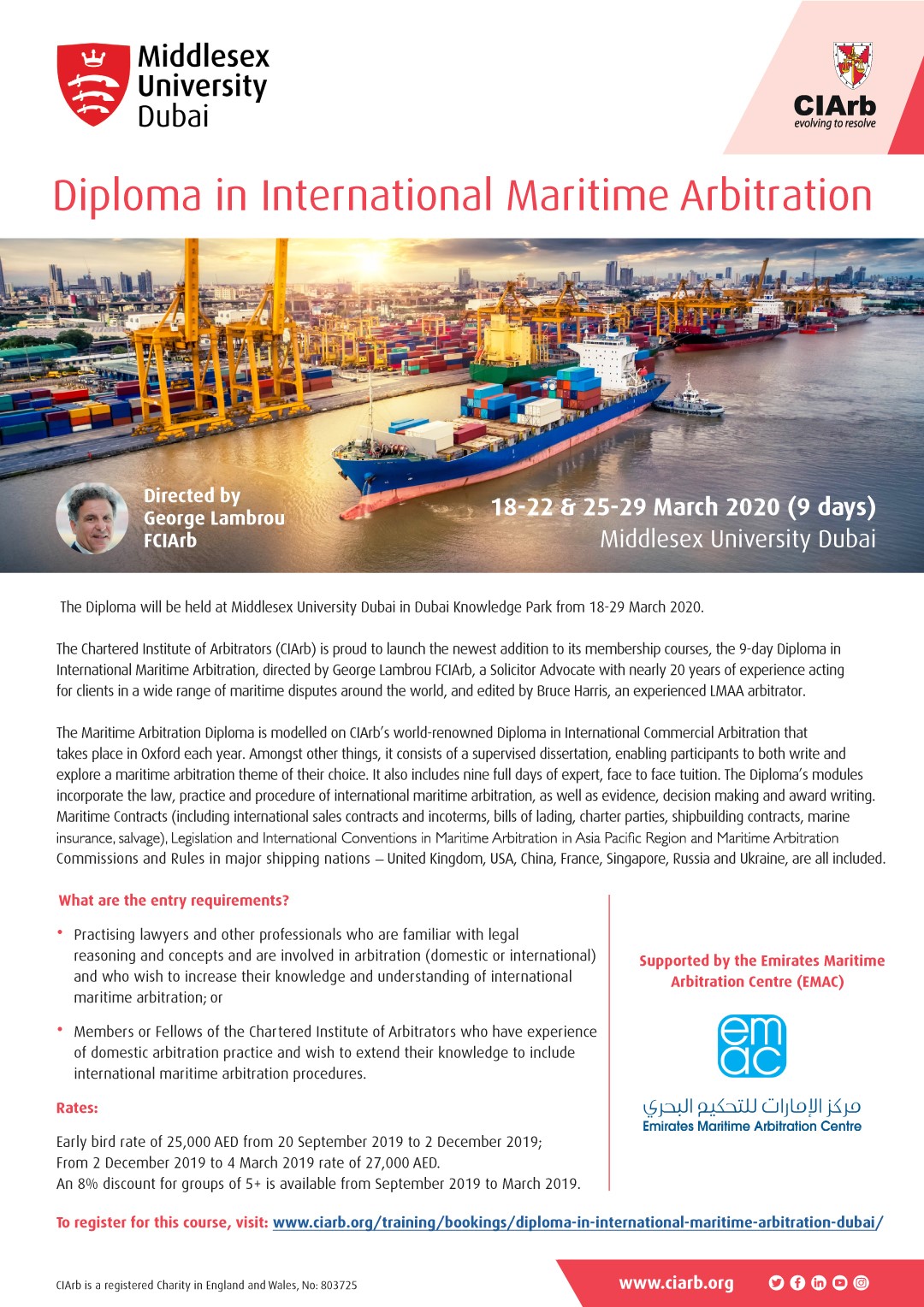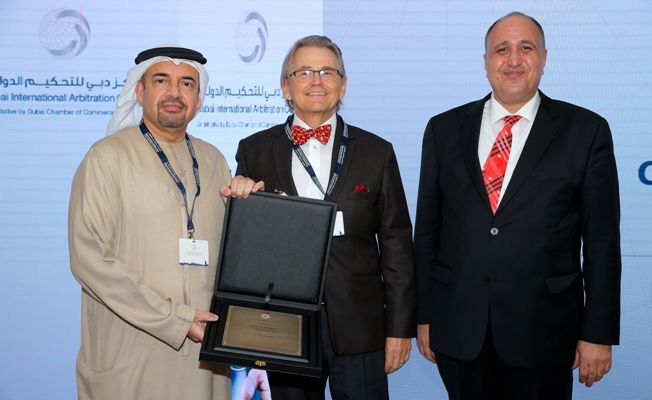CORRECTED. In a development hailed as signalling a change of direction for Saudi Arabia in the wake of new arbitration and enforcement laws, a court in Riyadh has confirmed that a US$18.5 million ICC arbitral award will be enforced against a Saudi-domiciled debtor.
Riyadh
While Saudi Arabia does not make its enforcement decisions public, DLA Piper, as counsel to the enforcing party, announced the development on its website recently. The date of the decision is unknown.
Partners Henry Quinlan and Amer Abdulaziz Al-Amr, who are based in Dubai and Riyadh respectively, say “the decision to enforce this major foreign award, in addition to the relative speed with which the decision was reached [in just three months of the case being referred to the court] is one of the most significant developments in arbitration in the Middle East for many years”.
In the past, obtaining recognition and enforcement of foreign arbitral awards has been “fraught with difficulty” in Saudi Arabia, which is “one of the most problematic New York Convention signatory countries”, they explain.
“As a result, contracting with Saudi parties with no identifiable assets outside the kingdom has always added a layer of risk. However, the kingdom recently revamped its arbitration and enforcement laws to more closely reflect international standards – changes which prompt the hope that Saudi might become a more arbitration-friendly jurisdiction as it seeks to diversify its economy and encourage more foreign investment.”
This decision is the first sign that the “situation is changing for the better,” they say.
An arbitration at a time of transition
Quinlan and Abdulaziz report how, in 2011, an experienced London-seated tribunal issued an award ordering a Saudi data communications service company to pay their client, th United Arab Emirates subsidiary of a Greek telecommunications company, US$18.5 million damages. The UAE claimant was also successful in defending counterclaims totalling US$350 million. The tribunal is understood to have included three UK arbitrators, Stuart Isaacs QC (as chair), Andrew Foyle and Ian Hunter QC.
During the course of a proceeding to enforce the award in Saudi Arabia, the country passed two new laws by royal decree: an arbitration law based on the UNCITRAL Model Law and an enforcement law (in 2012 and 2013, respectively). These replaced legislation from the 1980s which was seen as unsupportive of the arbitral process.
One requirement of the 2012 enforcement law was that parties seeking recognition and enforcement of foreign arbitral awards bring proceedings before a new specialist enforcement court, rather than before the courts of the Board of Grievances – Saudi Arabia’s independent judicial committee answerable to the king.
The UAE company accordingly transferred its enforcement application to the new court, where it was recognised, confirmed and converted into an executable Saudi court order three months later. No appeals are permitted from decisions of the court.
Quinlan and Abdulaziz state that in confirming the enforceability of the award in accordance with the new law, the judge had to satisfy himself that the country in which the award was rendered would reciprocate by enforcing awards issued in Saudi Arabia – established by simple reference to the UK’s accession to the New York Convention.
The judge also had to satisfy himself that the Saudi courts had no jurisdiction to hear the dispute owing to an arbitration clause in the contract; that the arbitration complied with due process; that the award was in final form according to the law of the seat; that it was not inconsistent with a judgment or order in relation to the same dispute issued by a competent local court; and that it did not contradict Saudi public policy or Saudi law (which reflects shariah law principles).
“The award did not include any award of interest, which might otherwise have been problematic,” Quinlan and Abdulaziz note.
Having issued the order, they say the powers of the enforcement court were “significant”. If the Saudi award debtor failed to pay the sum owed or to disclose property sufficient to satisfy the award within five days of notification, it would be deemed to be procrastinating and the enforcement judge could ban the award debtor (or its directors) from travel; suspend their ability to issue powers of attorney in relation to assets; order disclosure of and attach assets and revenues to the amount of the award; order disclosure of company licences and records; and notify credit agencies of the unpaid award so they could be added to a credit blacklist.
It is not clear whether payment was made or if the court took any of these steps.
No longer the black sheep
Raza Mithani, a partner at Berwin Leighton Paisner in Dubai who handles Saudi-related disputes, tells GAR that arbitration (or takheem, as it is known in Arabic) has deep roots in Middle Eastern legal tradition and can be traced back to the earliest sources of shariah law.
He says Saudi Arabia acceded to the New York Convention in 1994; however, the unsupportive previous legal framework for arbitration means it has been “underutilised as a method of resolving disputes in the kingdom”.
This rare reported enforcement decision marks a break with the past, when the Board of Grievances “was reluctant to enforce awards and would review their merits” and is “an encouraging sign that the new laws are being implemented”, Mithani says.
Mithani also highlights other changes to the Saudi arbitration regime thanks to the new legislation. Arbitrations can be conducted in languages other than Arabic if the tribunal so directs; the right of parties to apply the substantive laws and institutional arbitration rules of their choice is recognised; the need for parties to get their arbitration agreement validated by the courts before arbitration starts has been scrapped; and the there is a 12 month time limit for issuing awards, extendable by six months, as opposed to the overambitious 90-day limit under the old law.
Crucially, the new arbitration law prevents the Saudi courts from re-examining the facts of a case, although it can still review awards for compliance with shariah. The changes led Reza Mohtashami of Freshfields Bruckhaus Deringer to describe Saudi Arabia at GAR Live Dubai in 2013 as “no longer the black sheep of the region”.
When it comes to enforcement, the new dedicated court offers hope of a more streamlined process and consistency of decisions.
Saudi Arabia approved plans to set up a new commercial arbitration centre in 2014, with board members announced soon after. At around the same time, there were reports of a plan to establish a specialist Saudi-British Arbitration Centre in London, where a panel of arbitrators including former British judges would determine disputes under English law, using shariah-compliant procedural rules. It is understood both centres have yet to open.
In the Riyadh enforcement proceeding
Counsel to the claimant (UAE subsidiary of a Greek telecoms company)
Partners Henry Quinlan in Dubai and Amer Abdulaziz Al-Amr in Riyadh
Counsel to the respondent (Saudi data communications provider)
Partner Dale Stephenson in Riyadh
In the London-seated ICC arbitration
Tribunal
Counsel to the claimant (UAE subsidiary of a Greek telecoms company)
Partner Ioannis Alexopoulos* and legal director Elinor Thomas in London
* joined the London office of Bryan Cave in January 2015
Counsel to the respondent (Saudi data communications provider)
- Squire Sanders & Dempsey*
Partners Carol Welu in London and Dale Stephenson in Riyadh
* following merger, became Squire Patton Boggs



